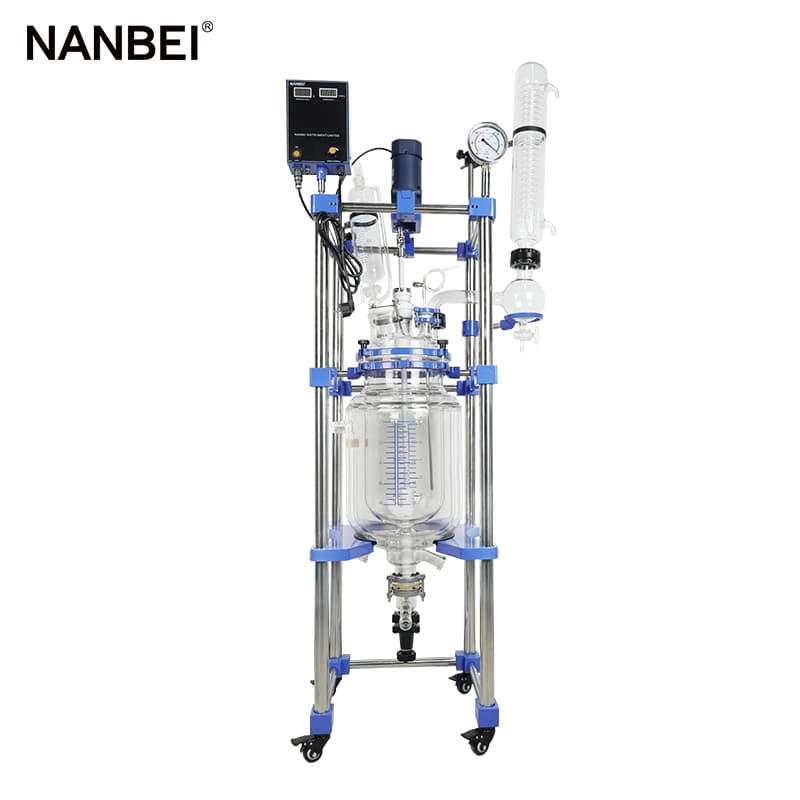 Mobile: +86 15890068607
Mobile: +86 15890068607
 Email: bella@nanbei-china.com
Email: bella@nanbei-china.com
 Mobile: +86 15890068607
Mobile: +86 15890068607
 Email: bella@nanbei-china.com
Email: bella@nanbei-china.com
Glass reactor is a kind of laboratory equipment, mainly used for experiments such as chemical reaction and material synthesis. It is widely used in the fields of chemistry, pharmaceuticals, food, agriculture, etc. So, is the glass thickness of the glass reactor the thicker, the better?
The strength of glass is proportional to its thickness, so the thicker the glass, the higher its resistance to pressure and impact. However, the most important characteristics of laboratory glass are resistance to thermal shock, high temperature and low temperature. In the production and manufacturing process of laboratory glass, it is necessary to ensure that the inner and outer glass can maintain the same cooling rate and shrinkage ratio, so as to ensure that the thermal expansion coefficients of the inner and outer glass are consistent. However, the thicker the glass, the more difficult it is to ensure the same cooling rate and shrinkage ratio for the inner and outer glass, which leads to inconsistent thermal expansion coefficients and stress product quality problems.

Most laboratory glass reactors are used for heating and cooling reactions. The thicker the glass, the worse its heat transfer performance is, which can directly affect the actual reaction effect. Therefore, there must be a balance between temperature resistance, heat transfer performance and strength.
* HOT ARTICLE
Welcome to the official website of the Nanbei Group *